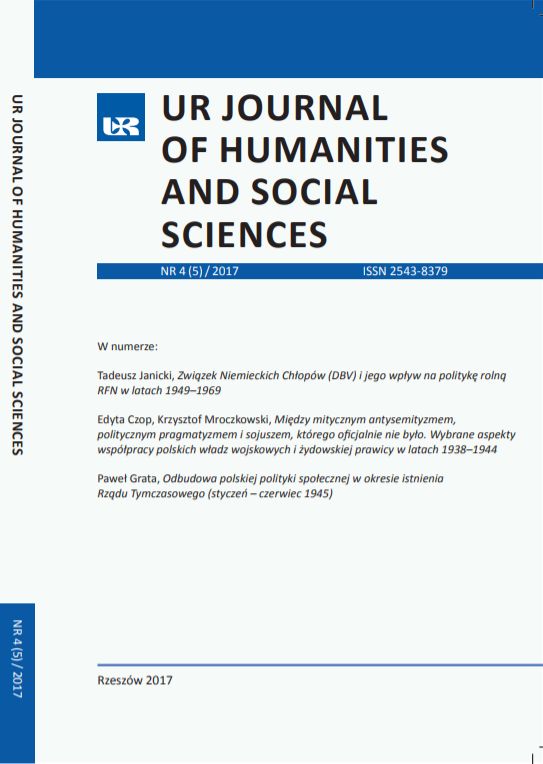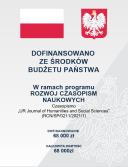The German Farmers’ Association (DBV) and its influence on agricultural policies in West Germany 1949–1969
DOI:
https://doi.org/10.15584/johass.2017.4.6Keywords:
German Farmers Association, Deutscher Bauernverband - DBV, agricultural politics, West Germany, Common Agricultural PolicyAbstract
AT the turn of the 20th century in Germany a model of agricultural politics was developed based upon protectionism and interventionism. An active role in its shaping was played by agricultural organisations, especially the German Agrarian League (Bund der Landwirte – BdL), established in 1893, and a whole host of regional Farmers Associations, which in 1900were merged to create the Association of German Farmers Associations (Die Vereinigung der deutschen Bauernvereine – VdB). Following WWII this organisation was superceded by the German Farmers Association (Deutscher Bauernverband – DBV), which represented a continuation in both ideological terms, and of personnel. The aim of the article is to present the genesis of the DBV and its political thinking, the mechanisms of its influence on domestic and foreign agricultural policies in West Germany between 1949 and 1969, and the results achieved. The DBV was a disciplined and centralised organisation, which managed to achieve a high level of organisation amongst farmers, reaching an average level of 90% of thise employed in this economic sector. In light of this analysis, it is possible to state that the DBV was one of the most effective lobby groups in West Germany. In the period under discussion it managed to achieve all of its primary objectives, despite a decline in the position of the agrarian economy, its shrinking social base, and – in the late 1960s – an increase in public criticism of existing agricultural policies. The basis of the aforementioned success was the close connection with the governing parties during this period, specifically the CDU and CSU, who in return for electoral support implemented the political postulates of the Association.
Downloads
Downloads
Published
How to Cite
Issue
Section
License
Copyright (c) 2017 Wydawnictwo Uniwersytetu Rzeszowskiego

This work is licensed under a Creative Commons Attribution-NonCommercial 4.0 International License.



